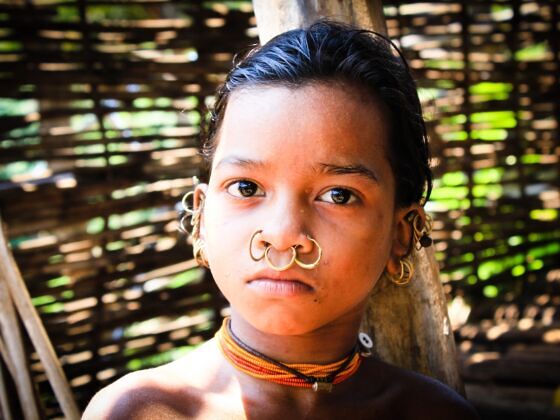I was surprised. I was relieved. The Indian government was standing up for an isolated tribe against a multinational corporation that promised profit. In a country still struggling to balance development with socio-environmental safeguards, this was a rare and emphatic victory for the other side.

The Mining Project
Early in 2005 British mining company, Vedanta Resources, began plans for a multi-billion dollar bauxite mining project in the Niyamgiri Mountain in western India. The bauxite would feed Vedanta’s aluminium refinery located near the foothills. The first phase involved land acquisition and deforestation. In the bigger scheme of things this was just another industrial project in India, but closer to the ground, it threatened to destroy the culture and environment of the native Dongaria-Kondh tribe.
Impact on the Local Culture and Environment
I had never heard of the Dongaria-Kondh tribe. I suspect very few had. But over the last few years I learnt they’ve lived in these mountains for centuries, that they maintain a self-sufficient agrarian lifestyle, living in complete harmony with their environment, and that they are animist; the land isn’t only a means of livelihood, it is the foundation of their faith.
Even as the bulldozers marched in to clear over 650 hectares of forested land, locals and activists argued the project would destroy the surrounding environment.
The bauxite content in the hill enables soil to hold water. Excavation would have an adverse impact on the quality of the ground water. It would increase the risk of drying up available water sources, and it would likely cause failed crops and health risks (already, there’s been a jump in the number of TB cases).
The region is familiar with stories of displaced tribes struggling to survive after their land has been razed; those affected include the residents of Lanjigarh village, where the Vedanta Alumina Plant is located. This is the fate the Dongaria-Kondh want to avoid. They want to continue living the life they know on the mountain they love.
Despite pressure, the Dongaria-Kondh have remained strong, and with the support of civil rights groups and international organizations like Survival International, ActionAid, and Amnesty International, they have taken the fight to a global stage.
The August Ruling and the Development vs. Environment Debate
On August 24, 2010, based on the findings of the Forest Advisory Committee (FAC), highlighting improper practices including manipulation and use of coercion, the Government rejected the company’s bauxite mining proposal for Niyamgiri in Orissa, and initiated further investigations into project discrepancies.
This landmark verdict may serve as a benchmark for other such projects in the country. It has also reignited an age old debate – development versus social and environmental rights.
The common refrain is that if growth rates of 9-10% are to be maintained, and India is to continue its competitive face-off against countries like China, is this the right way to go? But for a long time, India has operated on a ‘for the greater good’ principle; impoverished communities have been constantly marginalized in the name of industrialization; the displacement is dismissed as collateral damage for a better India.
But of late there is a growing realization that this is not an ‘either-or’ problem. More telling has been the dramatic shift in the social fabric of rural India over the last decade. The country witnessed a lethal Maoist uprising across the poorest regions. Marginalized rural communities are taking up arms and the bodies are piling up; the cost of development is now hitting the majority and it’s for the greater good that the government pays heed to their concerns.
Community Connection
The landmark Forest Advisory Committee report can be read here.